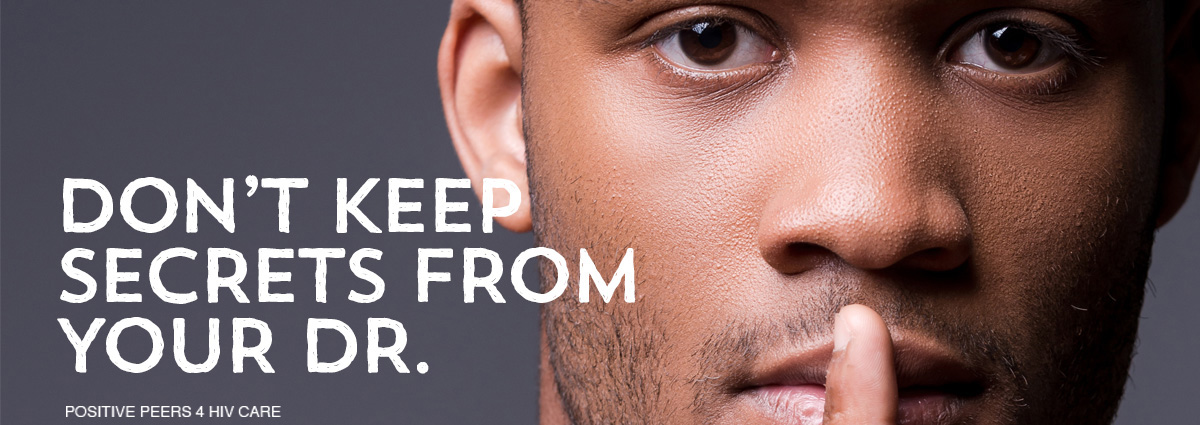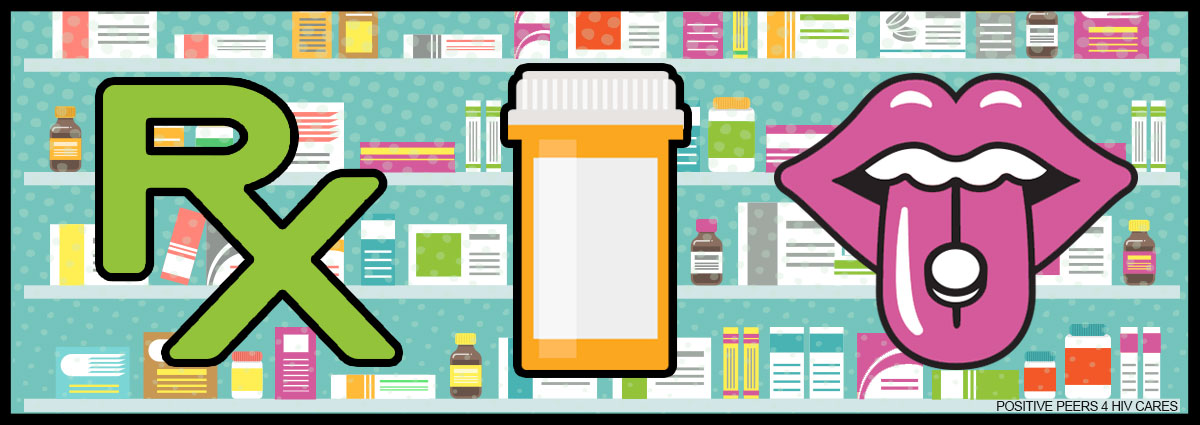
By: Jennifer McMillen Smith, LISW-S, HIV Social Worker at MetroHealth Medical Center and medically reviewed by Ann K. Avery, MD, Infectious Disease Physician at MetroHealth Medical Center
Going to the pharmacy is a super important part of managing HIV. It’s where you go to get your amazing meds that we’re always talking about. Without your meds, HIV could end up controlling you and not the other way around. That’s why it’s important to have easy access to a pharmacy that is both affordable and reliable.
So whether you go in person or you deal with the pharmacy over the phone, we have some tips to help make your pharmacy experience a good one. Keep these bits of advice in mind the next time you go to the pharmacy:
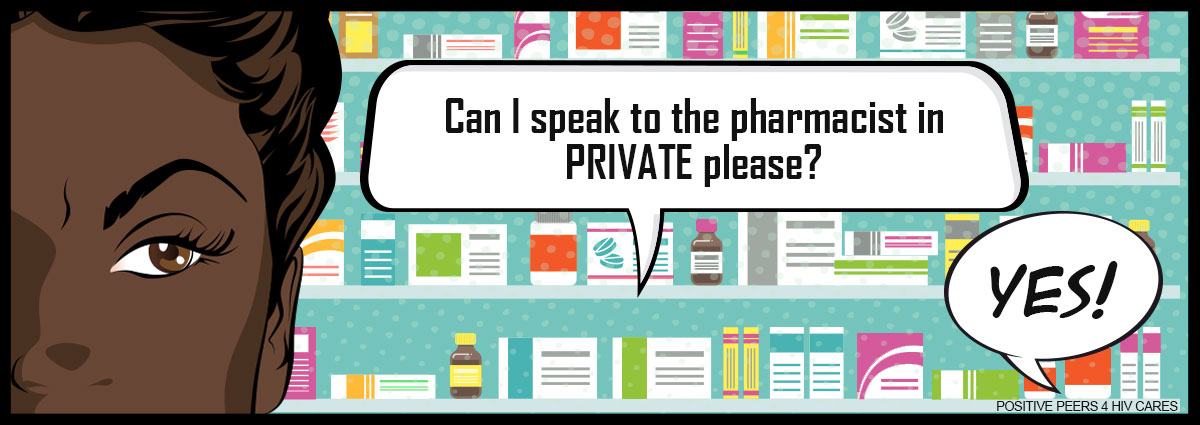
It’s OK to ask for privacy
It’s nobody’s business that you have HIV. And there’s no need to give anybody a chance to find out about your status when you’re at the counter talking to your pharmacist.
Go ahead and ask for a more private way to talk things over. Your pharmacist should be cool with that. If they aren’t, maybe you need another pharmacy. Did you know that there are many mail-order options? You never have to step foot into a building, you just talk to someone over the phone, and your meds are sent to you via FedEx, UPS, or U.S. Postal Service.
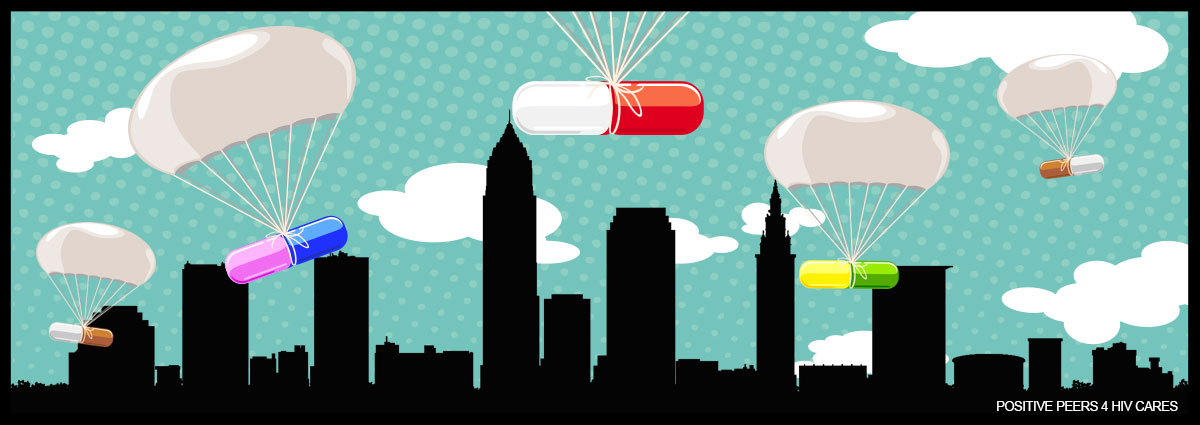
Find a pharmacist who has HIV experience
There are dozens of HIV meds and once in awhile, certain ones could interact with other stuff in your world — diet, vitamins, herbal remedies, and other meds, to name a few.
Pharmacists who have a track record working with people living with HIV will be much more familiar with these interactions. They’ve seen most of them before and have a good idea about how to handle them. They also tend to be more understanding. Some pharmacies have employees that are trained to avoid throwing shade like it’s a freaking stigma party or something.
In Cleveland, there are several community pharmacies that specialize in HIV and can even help you get financial support to cover any expensive copays. Ask your doctor, nurse, counselor, or social worker to recommend an experienced pharmacist with a great reputation.
Come join our private, stigma-free, supportive community.
Health management tools with medication & appointment reminders.
Social networking in a community conversation & private chats.
Take a list of EVERY substance you’re putting into your body
Your pharmacist needs to know about:
- All the prescription medications you’re taking
- All the vitamins and supplements you’re taking
- How often you drink alcohol and take recreational drugs
Herbal remedies like St. John’s Wort can make certain anti-retroviral meds less effective, for example. Your pharmacist will know the common interactions and side effects of your HIV meds.
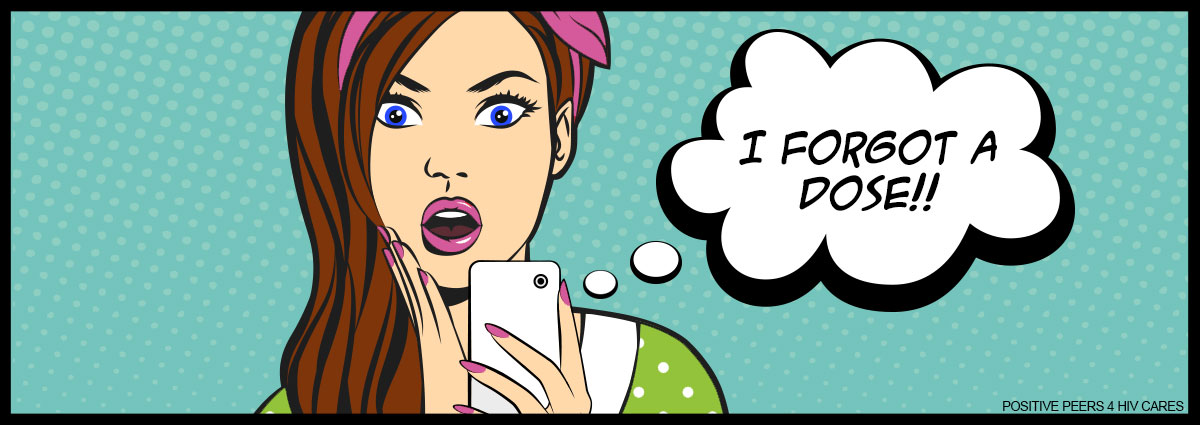
Be absolutely honest with your pharmacist
Everybody makes mistakes – like forgetting a dose. Sometimes we slip up and then get all embarrassed about it because it’s something we were warned not to do. It’s totally okay to ask the pharmacist what to do in that scenario. Some pharmacies are open 24/7, so you can just dial them up and ask away any time, night or day. Remember, your pharmacist wants to help you. Their whole professional goal is to help get the best treatment for you. The best way to help them help you is to answer all their questions honestly and ask them all the questions you need to. It can seem awkward, but don’t worry about it. You’re the one in charge of your health.
Pro-tip: If you know you might be prone to missing doses, you might want to consider a pharmacy that uses “adherence packaging” — different ways of dispensing your meds other than bottles — to help you remember to take every dose, every day. Ask your healthcare provider about it! There are lots of options.
More on HIV medications:
- Can HIV meds stop working?
- Drug assistance programs for HIV meds
- What is PrEP?
- Can I overdose on my HIV meds?
- Pillboxes can help you remember to take HIV meds
Related Blogs:


